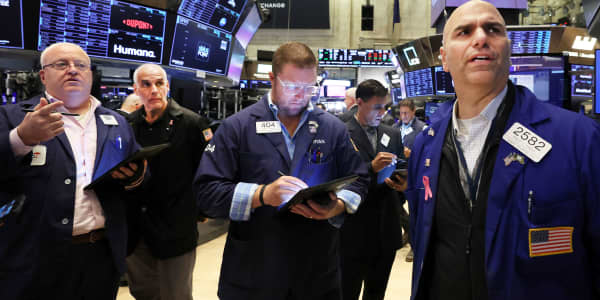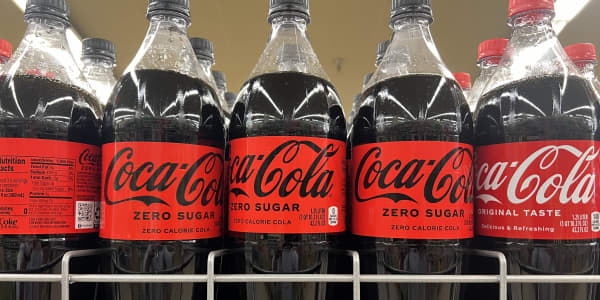Groucho Marx once said, "I refuse to join any club that would have me as a member."
Apple CEO Tim Cook should be saying the same thing now that Apple has become part of the "4 percent club," meaning it now makes up more than 4 percent of the S&P 500.
Four other stocks had joined that infamous club and none was able to maintain that size since the S&P 500 was created in 1957, according to The Leuthold Group.
"While we own Apple stock across all of our quantitative long equity strategies, we'll admit to having mixed feelings when the company shot up to an S&P 500 index weighting of just over four percent last month," Doug Ramsey and team wrote in a report to clients last week. "We'd bet heavily that capitalism and the law of large numbers will combine to drive Apple out of the Four Percent Club in the next several years."
It's not a reason to sell Apple shares right away, but it should be cause for concern for long-term holders. Microsoft and Exxon Mobil lasted 12 months above a 4 percent weighting in the benchmark, according to Leuthold Group. GE made it 15 months. Cisco, on the other hand, lasted just a month at the top before the technology bubble burst.
A 12 percent surge this year pushed Apple's market capitalization to $712 billion, the most ever for a company, and the move brought its weighting in the S&P 500 to 4.03 percent as of Wednesday. As Leuthold points out, Apple's market value is more than 100 of the smallest stocks in the S&P 500. At one point last month, it also matched the combined market capitalization of the entire S&P Small Cap 600.
Apple market value, 5 years
Source: FactSet
Apple is down 5 percent from its record high reached last month despite its addition to the Dow Jones industrial average, a long-overdue acknowledgement of its size, but also another milestone that's put growth investors on edge.
The drop is really due to the official launch Monday of the Apple Watch, which disappointed some analysts because of the device's shorter-than-expected 18-hour battery life. Other investors worried that the watch may be an example of a very large company overstepping into a new category because there are no other avenues to sustain growth.
Read More The under-the-radar Apple Watch trade
If Apple, like all others before it, is unable to keep the 4 percent weighting, it does not spell disaster for the whole market.
As Jason Trennert, strategist for Strategas, pointed out last week, there have been many occasions when the largest stock in the S&P 500 retreated and it did not drag down the broad market. Exxon fell 15 percent in 2009 as the market rose. Microsoft lost 63 percent of its value in 2000, yet the S&P 500 fell just 10 percent that year.
To be sure, Leuthold concedes "that Apple remains considerably cheaper than Microsoft, GE, and Cisco Systems when those three stocks were members (of the 4 percent club)."
Apple could be considered downright cheap. Its forward price-earnings ratio at 14 is less than Google's 19 P/E.The S&P 500 has a 17 forward P/E.
Plus Apple was 4 percent of the index before in 2012. The shares declined after 10 months and didn't return to that club until this year.
So banishment from this club may not be permanent.





